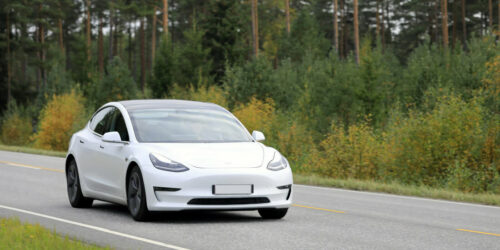Electric Cars: How Much Does It Cost To Run and Charge?
- It costs three times less to run an electric car compared to petrol
- Most of the popular electric cars have now lowered their insurance premiums
- A home charger could save you thousands
With its technology constantly evolving, electric cars are fast becoming one of the most popular methods of transportation.
They’re not only a great way to get around but considerably better for the environment.
But we understand you don’t want to commit to a new car without knowing more about prices. That’s why we’ve put together the cost of charging an electric car.
Interested in an EV charger? Use our quote comparison tool to find out how much you'd pay. It only takes a minute.

What's On This Page?
Click the links below and head straight to a specific section of the article.
The Cost of Electric Cars vs Petrol
The average cost of running a fully electric car is 8p per mile but there are even modern vehicles that can perform better than this.
Petrol cars could cost anywhere from 14-19p per mile, all depending on the size of the engine. Obviously the smaller the engine, the cheaper it will be to run.
This will scale up differently depending on car models but comparatively, electric cars are the cheaper option.
The Cost of Charging an Electric Car at Home
The most convenient and affordable option will be to charge at home. This will enable you to leave your car charging overnight so that it’s ready for when you leave the next day.
Home Charging Station
If you’re able to purchase a home charging station, you should be able to profit from the government’s Electric Vehicle Homecharge Scheme. This could save you up to £350 on the station’s initial cost.
Buying and installing a charger can cost around £1,000 so your discounted cost could be £650.
Since 15th June 2022, electric vehicle charging points are installed in new residential buildings. All new building developments with associated parking are to have access to electric car charging points. There are an estimated 145,000 EV chargers being installed as a result of the new regulations. The new law is part of the government’s wider plan to cut carbon emissions, with £1.3 billion being contributed to the development of electric vehicle charging stations.
With record prices of petrol and diesel unlikely to drop anytime soon, this seems like a worthwhile investment.
Electricity
The average distance a car will reach before running out of charge is around 198 miles but this will of course depend on the type of the car you have as they can range from 60 to 379 miles.
Electric cars cost around 8p per mile to charge, but that again depends on your electricity tariff. Current electricity tariffs are 24p/kWh.
Cost of Charging an Electric Car at Public Stations
Believe it or not, there are still some public charging stations that are free but these are becoming few and far between due to more people owning electric vehicles in the UK.
A paid public charging station is unfortunately the more expensive option and seeing one that costs 75p/kWh isn’t uncommon.
There are slow public chargers that are almost three times as expensive as they would be than charging at home.
Rapid chargers made by Pod Point, cost around 74p/kWh.
Public Electric Vehicle Charger Companies
If you don’t decide to invest in a home charger, there’s a range of companies who own the UK’s public charging stations. Here we've explained a list of public electric vehicle charger companies and the cost of charging an electric car.
They offer various plans but you’re still more likely to pay more with a subscription then if you had a home charging station. We’ve listed a few charging companies below that will effect the cost of charging an electric car.
Gridserve (Formerly Ecotricity)
Gridserve chargers start from 49p/kWh and the network consists of around 300 public charging stations. When Ecotricity, the company used to offer half price public charging to its home supply customers, but this has since expired. The network was sold to Gridserve in 2021.
bp pulse (Formerly Polar)
bp pulse took over from Polar at the end of 2020. The subscription service comes with a monthly fee of £7.85 a month, which gives you 20% off per kWh charged. Pay as you go customers don't receive this benefit. The company offers a free monthly subscription when new customers sign up to a full bp pulse membership, followed by a monthly credit of £9 for 5 months.
Fast chargers cost 59p/kWh, or 44p/kWh for subscribed members.
Source London
There are a smaller number of Source London stations and would make sense to choose over a nationwide plan if you rarely drive out of London, as it offers a lower cost of charging an electric car.
A £4 monthly subscription will allow you to access around 2,000 charging stations all over the city for a standard rate of 55p/kWh. Resident borough rates start at 46p/kWh.
Range Of Electric Vehicles
As well as knowing the cost of charging an electric car, it's also good to know what range you can get with a full charge.
This will depend on the vehicle as the range of electric vehicles can go from 60 to 379 miles. That’s a massive difference but it’s not necessarily a case of the bigger, the better.
The range you decide should match what you want from your new car. So before you buy it’s probably worth asking yourself what you need from your car.
Is it just for trips to the supermarket and visiting friends? Or for holidays and extensive trips? What's your budget?
If you want a smaller, relatively cheap vehicle for cruising around the city then you might want to invest in the Renault Twizy (62-mile range) at £12,000 or Smart’s Fortwo (91-mile range) or Forfour (87-mile range), which both sell for just over £20,000.
You wouldn’t be able to drive from London to Bristol with any of these models on a full battery but if you don’t need to go far, then they're perfectly suitable.
If you’re looking for a vehicle with a larger range, there are plenty of cars to choose from.
In fact there is a list of eligible vehicles that qualify for the government’s plug-in grant, which dealerships and manufacturers will use to knock around £3,000 off a car’s price. The list contains 30 models which have an average range of 198 miles.
There are a variety of fantastic offerings. From Volkswagen to Vauxhall, Tesla to Skoda, the big brands have entered the electric market with cars guaranteed to make you reach record distances.
We could even start seeing wireless EV charging roads in the future, thanks to the rapid innovation of the industry, which will only help a car's range further. This will be possible with wireless charging points being placed underground, which will continuously charge the car's battery as it drives over them.
Electric Car Insurance
It's best to know about electric car insurance as well as the cost of charging an electric car.
Electric cars are generally still slightly more expensive to insure but this is all dependent on the model, and the good news is costs are coming down each year.
The good news is that green cars are becoming increasingly mainstream, meaning that more and more insurers are looking at providing policies. As the number of insurers goes up, the cost is likely to fall. With electric car insurance, it's more important than ever that you don't simply auto-renew at the end of a year.
GoCompare Spokesperson in What Car?
When first entering the mainstream, electric cars were more expensive as insurers wouldn’t have any historical data to create risk assessments.
This would result in insurance companies creating extremely high premiums or just refusing to create policies for electric vehicles.
However, this is now changing as electric cars have become more common, and the cost of charging an electric car are lowering.
If an accident were to occur, battery packs are both easier to repair and less likely to be damaged in a crash than a petrol engine.
Electric cars are also stolen a lot less than petrol cars, which is likely due to their more unique fuelling situation. A thief can’t just steal your electric car and take it to any petrol station; it would require an aspect of forward-planning.
Summary
Electric cars are becoming increasingly popular and recently the UK has seen a surge in electric car sales. When compared to petrol cars, the cost of charging an electric car is considerably less to charge and run on the basis that you’re using a home charging station or if your work offers free charging.
But if you’re not planning on using either of those then the cost of charging an electric car via the public charging stations will quickly eradicate any savings you could make by going electric.
Related articles
View all EV charging articles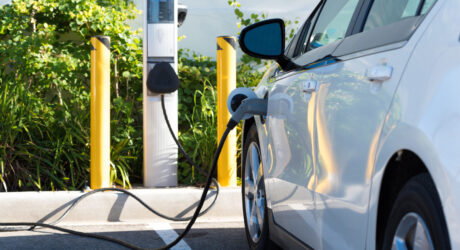
A Guide to Electric Car Batteries

EV Home Charger Installation Guide: How to Charge an EV at Home
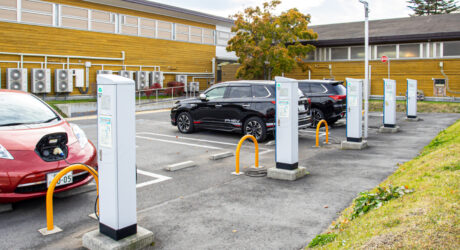
OZEV Grant: What Is It and Am I Eligible?

The Best Apps for Finding EV Charging Stations
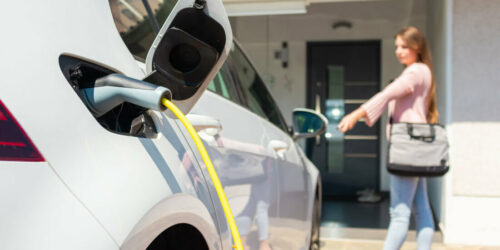
Electric Car Home Charging Stations: The Top Ten EV Chargers for Your Home

Should I Buy a Used Electric Car?
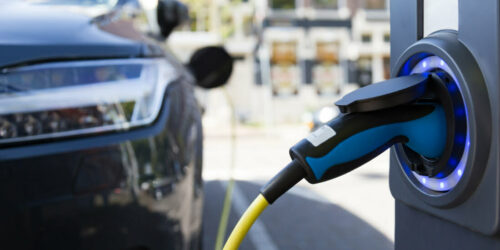
Electric Vehicle Range
